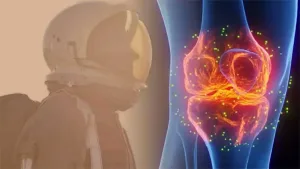In a groundbreaking study, researchers at Stanford Medicine have uncovered nearly 400 single nucleotide variants (SNVs) in DNA that play a critical role in inherited cancer susceptibility. This discovery marks a significant leap forward in understanding how genetic mutations influence cancer development and could revolutionize early detection and prevention strategies.
Understanding the Link Between DNA Mutations and Cancer
For years, scientists have known that certain genetic mutations increase the likelihood of cancer. However, pinpointing which mutations are truly responsible for driving cancer growth has been a complex challenge. The latest study from Stanford tackles this issue head-on by identifying specific genetic variations that regulate key cancer-related genes.
How These Mutations Influence Cancer Development
The identified 380+ DNA variants impact several crucial biological processes, including:
- DNA Repair Mechanisms: Mutations that impair a cell’s ability to fix damaged DNA can lead to uncontrolled cell growth, a hallmark of cancer.
- Cellular Metabolism: Changes in energy production pathways can create environments that foster tumor development.
- Tumor Microenvironment Interactions: Alterations in how cells communicate and migrate can contribute to cancer spread (metastasis).
The Role of Regulatory DNA in Cancer Risk
Unlike protein-coding regions of DNA, which directly create proteins, these mutations occur in regulatory regions that control gene expression. This means they influence when and how certain cancer-related genes are activated or suppressed. By identifying these regulatory variants, scientists can gain deeper insights into cancer biology and potential new treatment strategies.
Advanced Techniques Used in the Study
Stanford researchers employed cutting-edge DNA sequencing and genetic engineering techniques to study these mutations. They used specialized DNA barcoding technology to track how specific variants affected gene expression in different cell types. For example, they examined lung cancer-associated variants in human lung cells, allowing them to pinpoint mutations that significantly impact cancer development.
Implications for Cancer Screening and Prevention
This discovery could lead to major improvements in genetic screening for cancer risk. By identifying people who carry these high-risk mutations, doctors could recommend early screening and personalized prevention plans. This research also opens doors for new gene-targeted therapies, potentially stopping cancer before it even starts.
The Future of Genetic Cancer Research
With this study, Stanford has laid the groundwork for future cancer prevention strategies and personalized medicine. As research continues, scientists hope to refine genetic testing methods and develop targeted interventions that could significantly reduce inherited cancer risk.
Conclusion
This landmark study is a major step forward in understanding inherited cancer risk and genetic mutations. As technology advances, these findings could help millions by improving early detection, prevention, and treatment options.
#CancerResearch #GeneticMutations #InheritedCancerRisk #DNAResearch #StanfordMedicine #GeneticScreening #CancerPrevention #Oncology #MedicalBreakthrough #HealthInnovation




+ There are no comments
Add yours